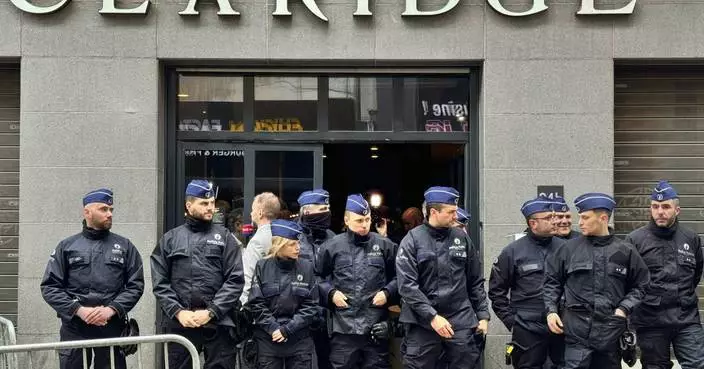French Polynesian President Edouard Fritch has said the leaders of the French collectivity of islands in the South Pacific lied to the population for three decades over the dangers of nuclear testing.
From 1960 to 1996, France carried out 193 nuclear tests in French Polynesia. The images, such as a mushroom cloud over the Mururoa atoll, provoked international protests.
"I'm not surprised that I've been called a liar for 30 years. We lied to this population that the tests were clean. We lied," Fritch told officials in the local assembly Thursday in footage broadcast by Tahiti Nui Television.
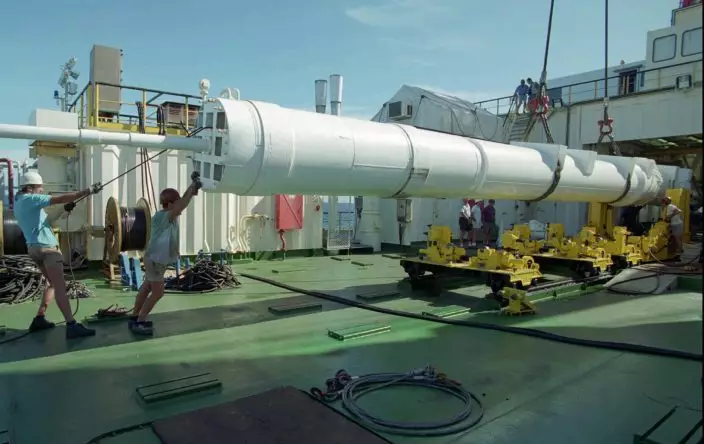
FILE - This July 26, 1995 file photo shows technicians loading one of the container tubes which will be drilled down into the Mururoa atoll French Polynesia for a nuclear test. French Polynesian President Edouard Fritch said Thursday the leaders of the French collectivity in the South Pacific "lied" to the population for three decades over the dangers of the controversial nuclear testing.(AP PhotoFrancois Mori, File)
France's overseas ministry declined to comment when contacted by the AP Friday.
Bowing to decades of pressure, in 2010 the French government offered millions of euros in compensation for the government's 201 nuclear tests in the South Pacific and Algeria. But the process is painstaking and many have still not received compensation.
Bruno Barrillot, a whistleblower investigating the impact of the Polynesian nuclear testing who died last year, raised awareness on the disproportionate rates of thyroid cancer and leukemia to hit Polynesia's 280,000 residents.
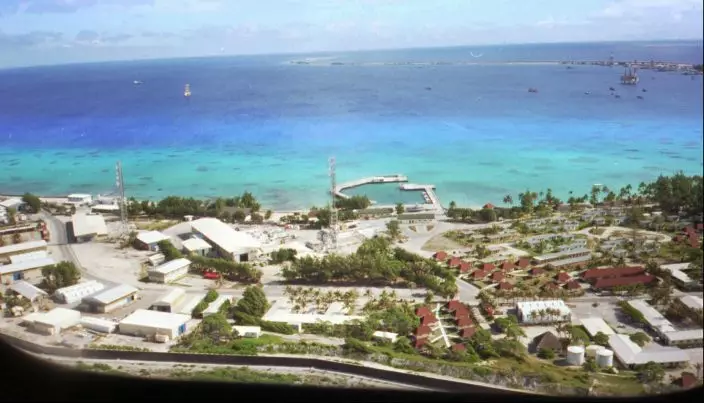
FILE - This Saturday, July 29, 1995 file photo shows an aerial shot of Mururoa atoll in the Pacific, French Polynesia, as viewed from a French helicopter carrying journalists. French Polynesian President Edouard Fritch said Thursday the leaders of the French collectivity in the South Pacific "lied" to the population for three decades over the dangers of the controversial nuclear testing. (AP PhotoAmy Pamintuan, File)
In 2016, then-President Francois Hollande acknowledged during a visit that nuclear weapons tests carried out in French territories in the South Pacific did have consequences for the environment and residents' health.
But Hollande spoke also about the testing in positive terms as he praised the region's contribution to France's position as one of the world's nine nuclear powers.
The presidential visit came three years after French media reported declassified defense ministry papers exposing South Pacific nuclear tests from the 1960s and 1970s as being far more toxic than previously acknowledged.
At the time, the media reported that the whole of French Polynesia had been hit by levels of plutonium in the aftermath of the testing.
Tahiti, its most populous island that was romanticized in the paintings of Paul Gauguin, was exposed to 500 times the maximum accepted levels of radiation. The fallout extended as far as the popular tourist island of Bora Bora.
WARSAW, Poland (AP) — Polish Prime Minister Donald Tusk expressed satisfaction on Monday after a series of candidates supported by his party won weekend races for mayor.
Candidates from his pro-European Union centrist Civic Coalition, or running with the party's backing, won in a series of cities in the second round of local elections held on Sunday, among them Krakow, Poznan, Wroclaw and Rzeszow.
“It is very difficult to clearly say who won and who lost,” Tusk said Monday. “But if we compare these results, especially in the most attractive places, on these attractive battlefields ... then I actually have reasons for satisfaction.”
“Law and Justice has simply disappeared in many places,” Tusk added at a news conference, referring to the main opposition party.
The results put Civic Coalition in a favorable position as the country looks next to elections to the European Parliament on June 9.
Mayors were chosen in a total of 748 cities and towns where no single candidate won at least 50% of the vote during the first round on April 7.
Candidates for Tusk’s party also recaptured cities where they had not held power for many years, including Zielona Gora, Legnica and Torun.
The local and regional elections were viewed as a test for Tusk's pro-European Union government four months after it took power at the national level. Sunday's second round strengthened the Tusk government's leverage in the cities, which should facilitate cooperation on development projects and allotment of EU funds.
Tusk's allies also won in some places in the first round two weeks ago, including in Warsaw, where incumbent Mayor Rafal Trzaskowski was an easy victor.
In the first round, the right-wing Law and Justice, prevailed on the level of regional assemblies in the country's 16 provinces, where it took 34.3% of the votes, while Tusk's Civic Coalition got 30.6%. Law and Justice governed on the national level from 2015-23.
Tusk’s socially liberal Civic Coalition traditionally has strong support in cities, while Law and Justice has a more solid base in conservative rural areas, particularly in eastern Poland.
Civic Coalition is the largest group in a three-party coalition that governs the EU nation of 38 million people. The coalition is pro-European Union but otherwise spans a wide ideological spectrum with left-wing politicians in the Left party as well as conservatives in the Third Way.
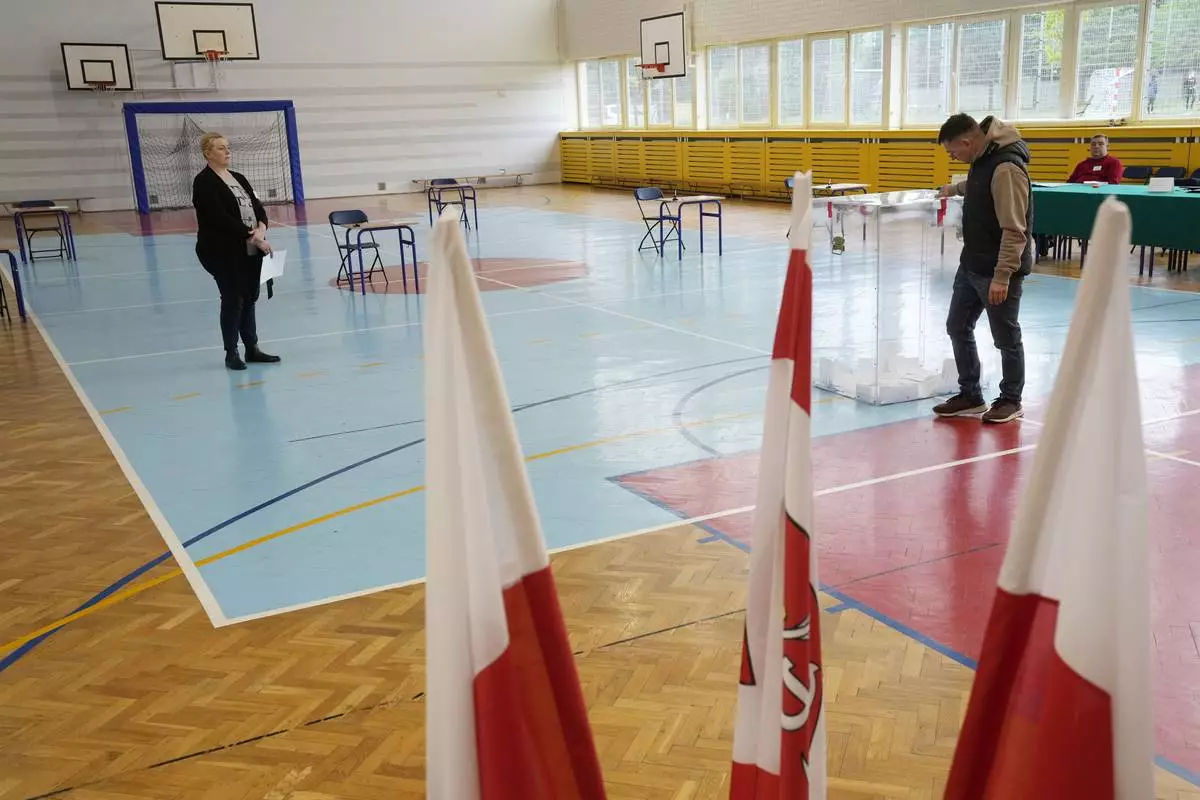
Polish voters take part in a local runoff election in Lomianki, near Warsaw, Poland on Sunday, April 21, 2024. Voters are choosing mayors who did not win outright in the first round of the election two weeks earlier. (AP Photo/Czarek Sokolowski)
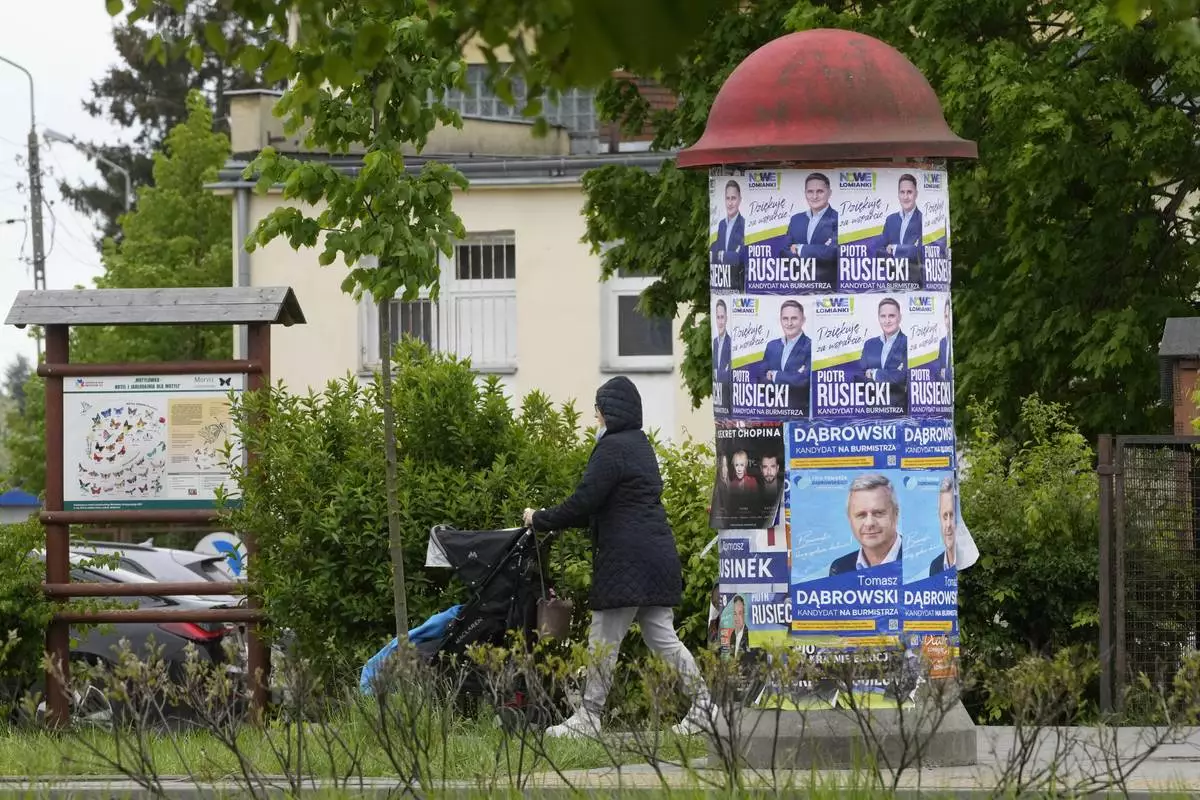
Campaign posters promote candidates as Poles vote in local and regional elections in Lomianki, near Warsaw, Poland on Sunday, April 21, 2024. Voters are choosing mayors who did not win outright in the first round of the election two weeks earlier. (AP Photo/Czarek Sokolowski)
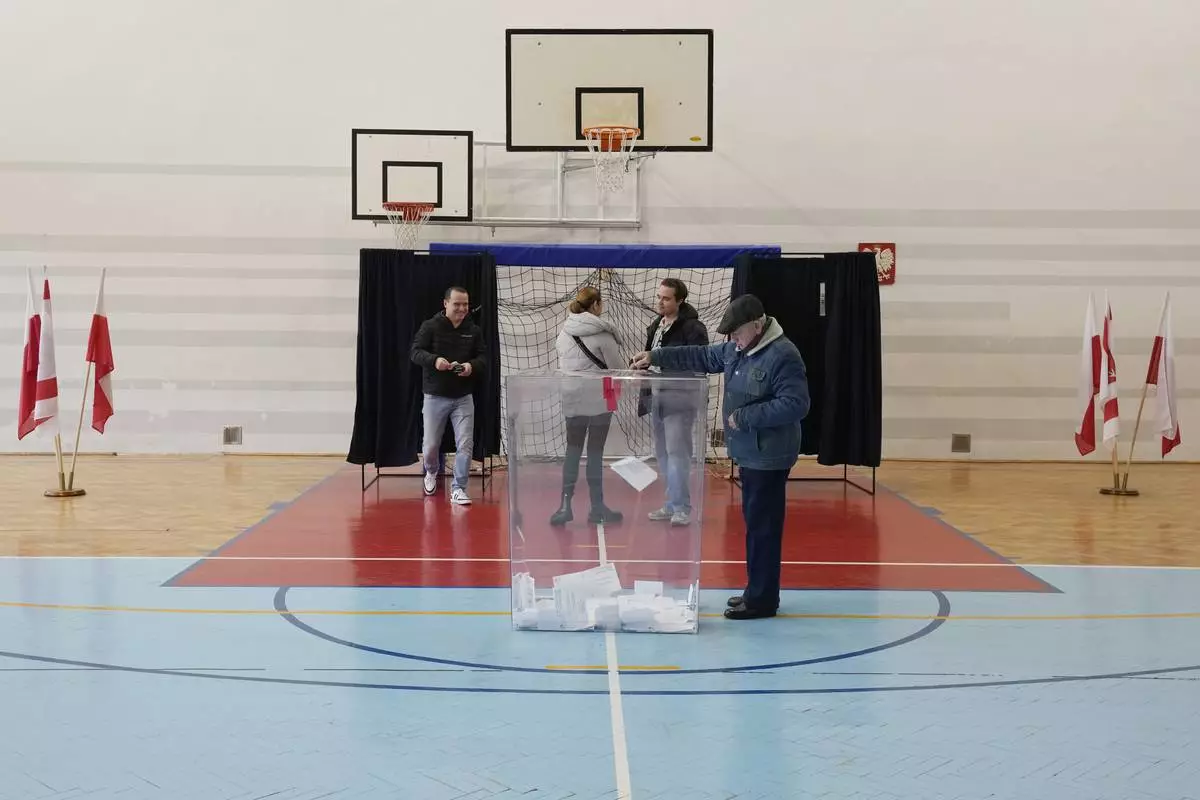
Polish voters take part in a local runoff election in Lomianki, near Warsaw, Poland on Sunday, April 21, 2024. Voters are choosing mayors who did not win outright in the first round of the election two weeks earlier. (AP Photo/Czarek Sokolowski)
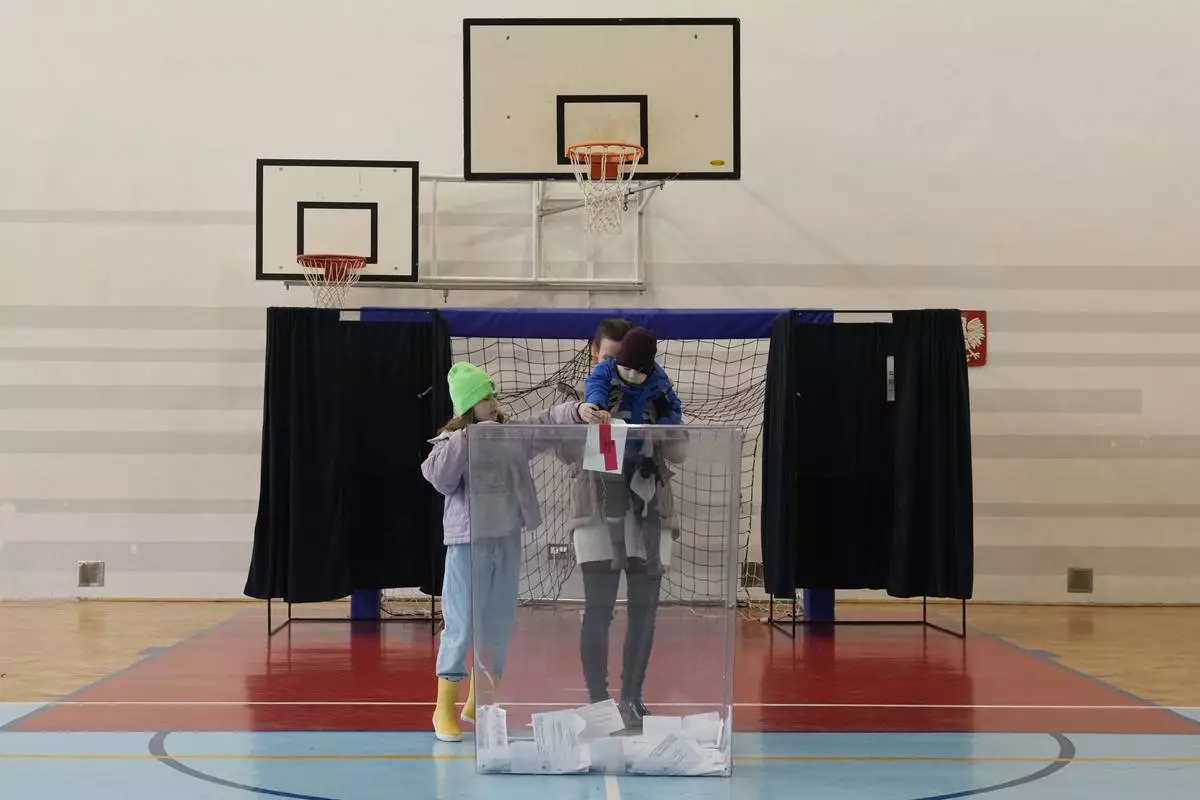
Polish voters take part in a local runoff election in Lomianki, near Warsaw, Poland on Sunday, April 21, 2024. Voters are choosing mayors who did not win outright in the first round of the election two weeks earlier. (AP Photo/Czarek Sokolowski)
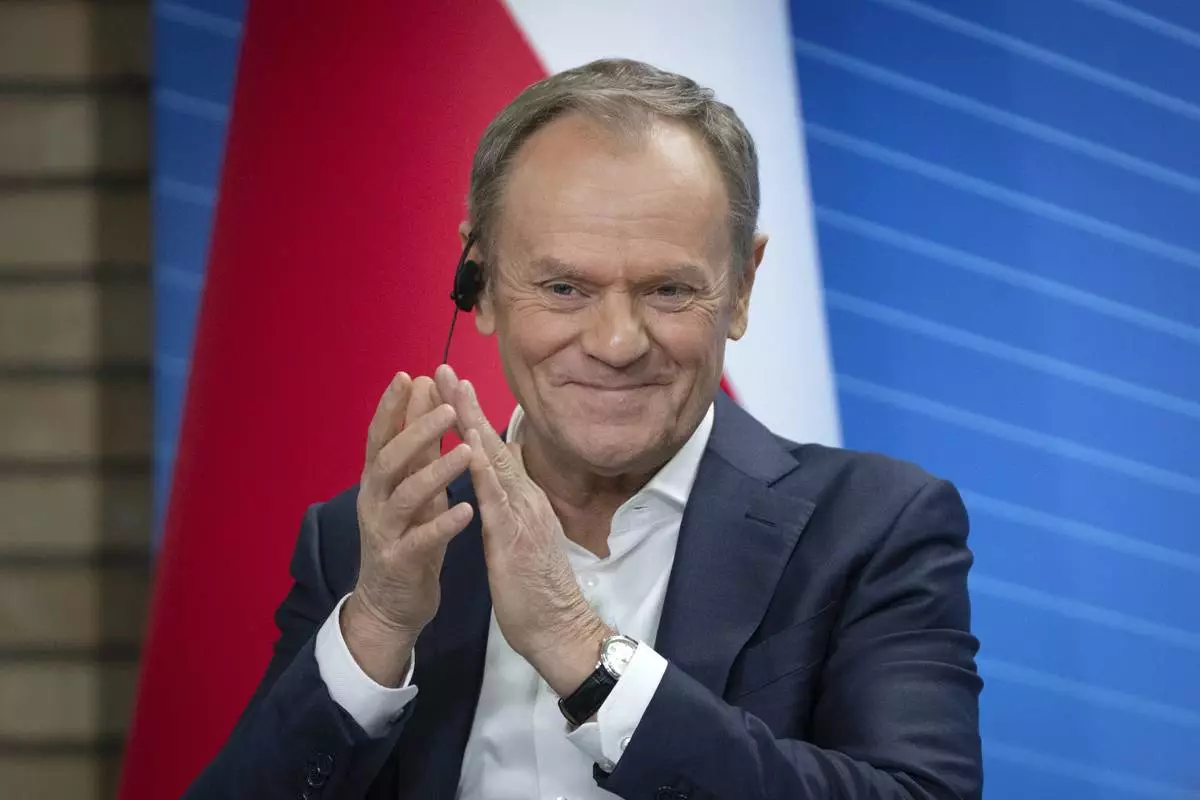
FILE - Poland's Prime Minister Donald Tusk reacts during his and Ukrainian President Volodymyr Zelenskyy meeting with students in Kyiv, Ukraine, Monday, Jan. 22, 2024. Poland's Prime Minister Donald Tusk is celebrating a victory on Monday April 22, 2024 after a series of candidates supported by his party won weekend races for mayor. (AP Photo/Efrem Lukatsky, File)
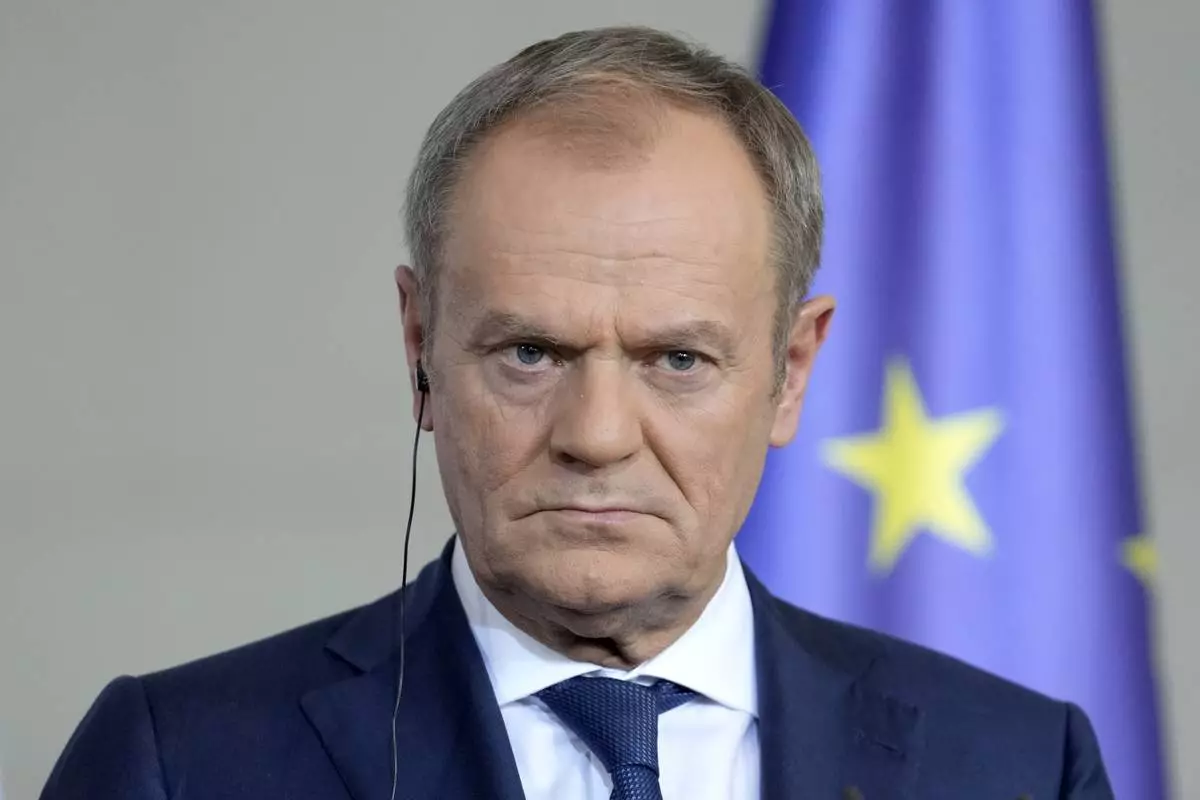
FILE - Poland's Prime Minister Donald Tusk listens to the media in Berlin, Germany, Friday, March 15, 2024. Tusk is celebrating a victory on Monday April 22, 2024 after a series of candidates supported by his party won weekend races for mayor. (AP Photo/Ebrahim Noroozi, File)

















